Publications
Articles, publications, books, tools and multimedia features from the U.S. Institute of Peace provide the latest news, analysis, research findings, practitioner guides and reports, all related to the conflict zones and issues that are at the center of the Institute’s work to prevent and reduce violent conflict.
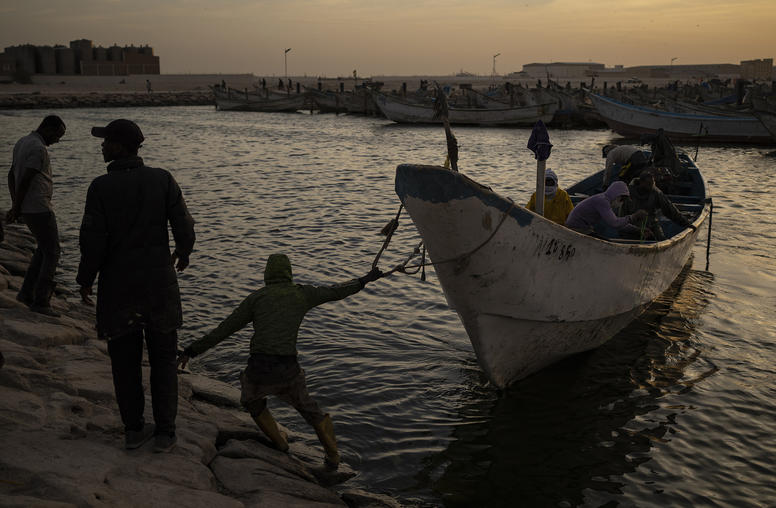
Senior Study Group for the Sahel: Final Report and Recommendations
The United States has not traditionally viewed the Sahel as a region of vital interest, whether in terms of security or from an economic or business perspective. This has led to a pattern of reactive involvement shaped by the circumstances of specific events rather than proactive commitments. This pattern reveals the lack of a comprehensive strategy for the volatile Western Sahel region, which includes Burkina Faso, Chad, Mali, Mauritania, and Niger. In April 2022, President Joe Biden announced that the US government would advance the “U.S. Strategy to Prevent Conflict and Promote Stability” in coastal West Africa by prioritizing a partnership with Benin, Côte d’Ivoire, Ghana, Guinea, and Togo.
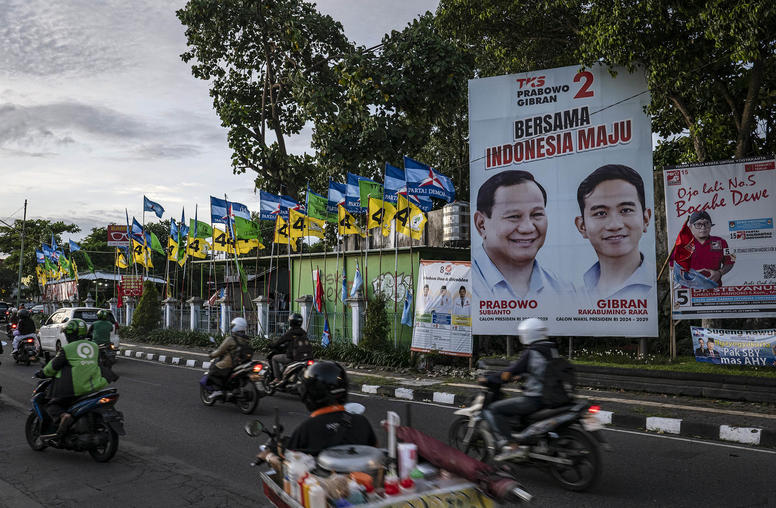
How Might Prabowo Navigate Conflict, Competition as Indonesia’s President?
Indonesia’s defense minister, Prabowo Subianto, is set to become the next president of the world’s fourth-largest country and third-largest democracy. Prabowo will take the reins of power at a tense moment for regional and global security and as president will have to contend with a persistent, low-grade conflict in West Papua. Continuity will likely hold sway as prevailing winds in Indonesia’s foreign policy chart a well-worn course for navigating geopolitical competition and global conflicts, this time with what appears to be a willing captain at the helm.
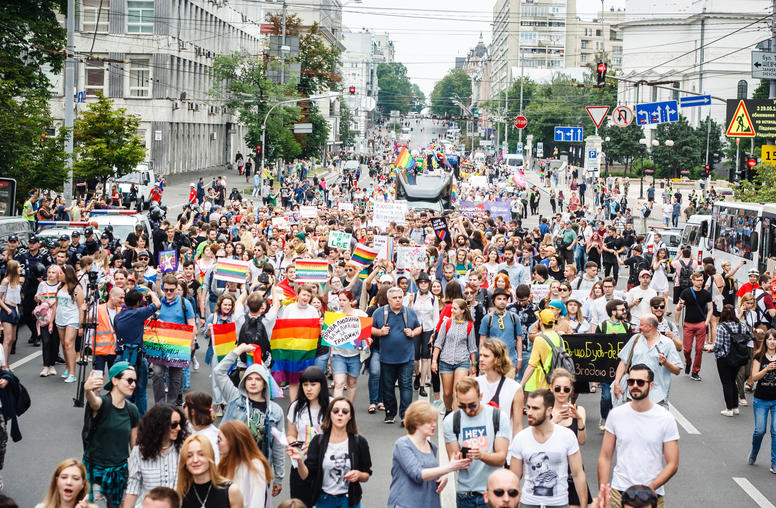
A Democratic Ukraine Must Include All LGBTQ+ People
As Ukraine fights for survival, it has relaxed some barriers to the social inclusion of gay, lesbian and other gender and sexual minorities—for example, welcoming some gay people into its armed forces. Yet this change should be expanded and made permanent. Often countries recruit marginalized minorities during wartime emergencies only to revive old practices of exclusion in peacetime. The more inclusive democracy that Ukraine aspires to, and that its transatlantic allies support bringing into full membership of Europe, will require transformations in laws, institutions and social norms for the equal inclusion of Ukrainian gender and sexual minorities.

Understanding Pakistan’s Election Results
Days after Pakistan’s February 8 general election, the Election Commission of Pakistan released the official results confirming a major political upset. Contrary to what most political pundits and observers had predicted, independents aligned with former Prime Minister Imran Khan’s Pakistan Tehreek-e-Insaf (PTI) won the most seats at the national level, followed by former Prime Minister Nawaz Sharif’s Pakistan Muslim League-Nawaz (PML-N), the Pakistan Peoples Party (PPP) and the Muttahida Qaumi Movement (MQM). No party won an absolute majority needed to form a government on its own. The resultant uncertainty means the United States may have to contend with a government that is more focused on navigating internal politics and less so on addressing strategic challenges.
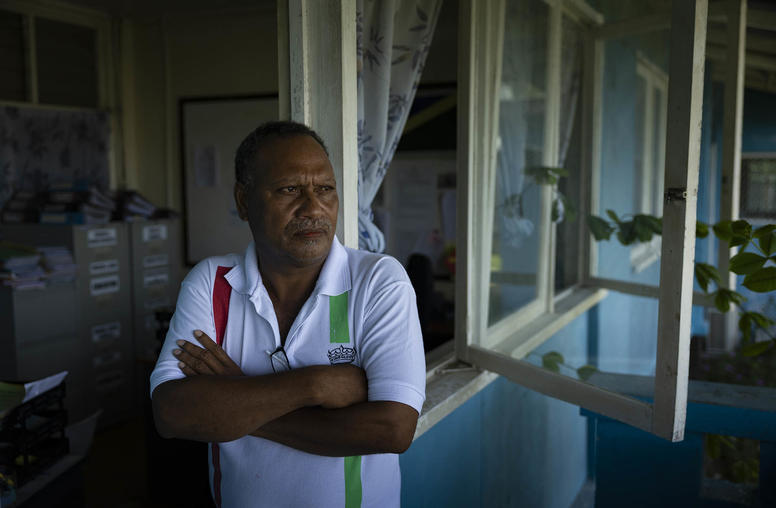
Malaita and the Provincial-National Divide in Solomon Islands
In 2019, Malaita Province in Solomon Islands made geopolitical headlines when its former premier, Daniel Suidani, came out against the country’s closer bilateral relations with China. As a result of his stance, Suidani was removed from his position in February 2023.

Tamanna Salikuddin on Pakistan’s Elections
Surprisingly, candidates aligned with former Prime Minister Imran Khan won the most seats in Pakistan’s elections. But while voters “have shown their faith in democracy,” the lack of a strong mandate for any specific leader or institution “doesn’t necessarily bode well for [Pakistan’s] stability,” says USIP’s Tamanna Salikuddin.
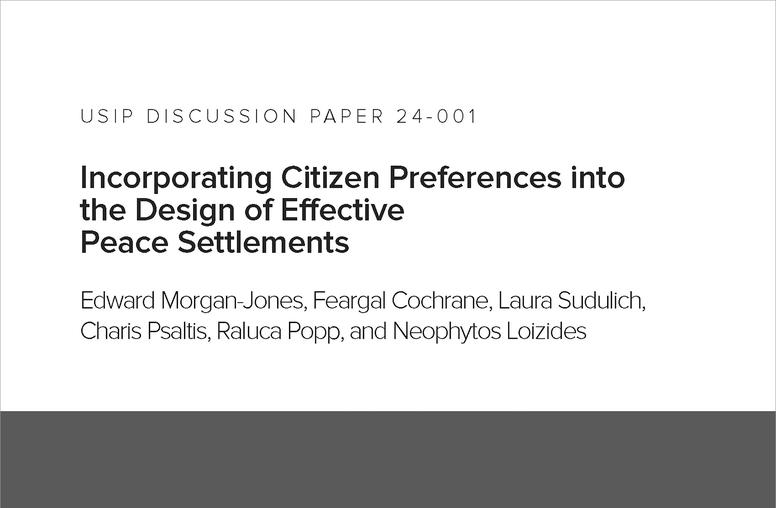
Incorporating Citizen Preferences into the Design of Effective Peace Settlements
This paper describes the use of conjoint survey experiments to identify citizen preferences with respect to a possible peace agreement in Cyprus and a border agreement in Northern Ireland. The recommendations offered in the conclusion emphasize the flexibility of the method and its transferability to other conflict settings. Results also suggest ways of reinvigorating stalled peace negotiations (Cyprus) or improving past deals (Good Friday Agreement/Brexit-Northern Ireland) and can help contending groups and mediators identify potential zones of agreement by revealing areas where contending groups’ preferences overlap or differ and where possible trade-offs exist that could lead to greater consensus.
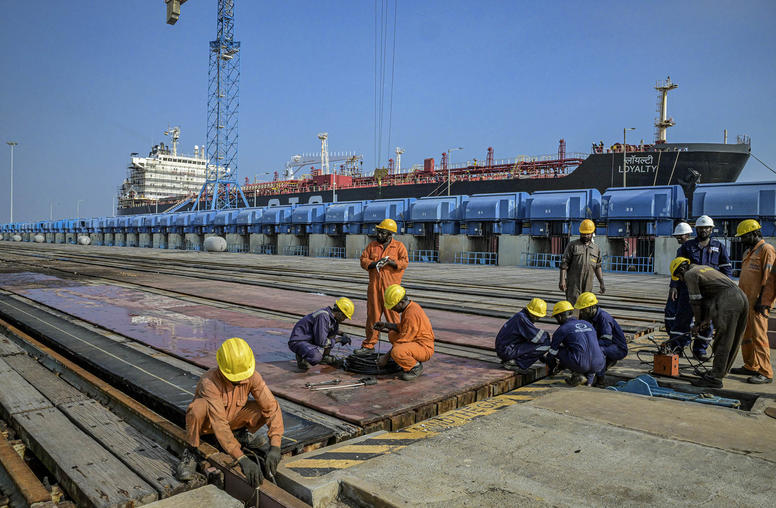
What’s the Deal with INDUS-X?
There was no shortage of splashy headlines during Indian Prime Minister’s trip to Washington last June. However, the launch of the U.S.-India Defense Accelerator Ecosystem (INDUS-X), a joint technical initiative focused on building an “innovation bridge” between the two countries, went relatively unnoticed.

As Fragile Kashmir Cease-Fire Turns Three, Here’s How to Keep it Alive
At midnight on the night of February 24-25, 2021, India and Pakistan reinstated a cease-fire that covered their security forces operating “along the Line of Control (LOC) and all other sectors” in Kashmir, the disputed territory that has been at the center of the India-Pakistan conflict since 1947. While the third anniversary of that agreement is a notable landmark in the history of India-Pakistan cease-fires, the 2021 cease-fire is fragile and needs bolstering to be maintained.

In Search of a Formula for Lasting Peace in Ukraine
As the war in Ukraine grinds to a stalemate, it is critical to begin building the peace and security frameworks that will establish a just and lasting peace for Ukraine and deter future Russian aggression. This includes building institutions that provide security guarantees for Kyiv.